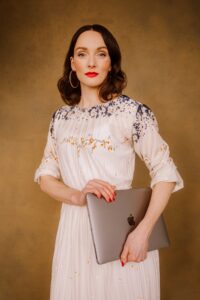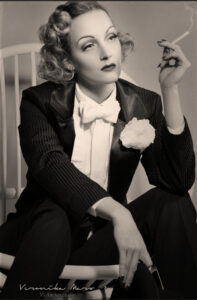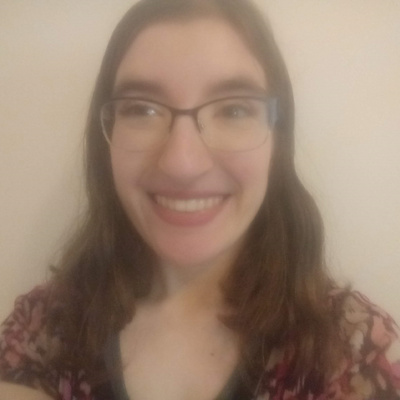Knowing How to Sell Yourself: Circus Consulting with Ulrike Storch

From street shows to performing at Kensington Palace, this German artist carved out her own unique place in the circus world as a foot juggler channeling vintage Hollywood star Marlene Dietrich… and now her job is teaching other artists the way to flourish. Joining our list and showcase of awesome circus consultants is Ulrike Storch, retired performer and creator of the Selling Circus program, a comprehensive training platform that guides its members through the art of self-marketing.
Carolyn Klein: Tell us about yourself and your circus background.
Ulrike Storch (US): I am a first-generation circus artist, starting at Staatliche Zirkus Schule Berlin when I was 15. Despite coming from a creative family, I began my training as a trapeze artist but never performed with it due to an injury. After a hiatus, I returned to the circus industry in Berlin, initially performing on the streets. It took time to gain acceptance into a professional circus school again. I trained independently and sought opportunities wherever available. A pivotal three-month stint in Kiev honed my handstands and flexibility, bolstering my chances for professional circus education. Eventually, I secured a spot at Codarts in Rotterdam. There, I received intensive training in food juggling from Gregor Kiock and was mentored by Juan Liu, an ex-Cirque du Soleil artist. Despite lacking a formal gymnastics or dance background, I persevered through challenges in circus school.

By the time of my graduation at 24, I was determined to succeed. I moved to England and forged a remarkable career as a professional juggler, primarily in the Cabaret scene in London, as well as in corporate and German variety settings. Due to the nature of my act, I also found opportunities in the fashion and vintage industries. In London, I ventured into producing, staging my own show in the West End and contributing to larger projects in casting, creative direction, and behind-the-scenes work.
The more personal approach would probably say that I always felt like an outsider, that everyone was better than me and that someday, someone would find out I was an imposter… but if I just trained hard enough no one would ever find out. All my education was an accumulation of making sure I got a ticket to the show—[to] having a circus career. Even though I think I just got in as someone else’s plus- one—I made sure that I was the talk of the party.
CK: What is your primary focus as a business coach?
US: My primary focus as a business coach for circus performers is to equip performers with the skills and tools they need to get booked for quality contracts that pay well and are creatively fulfilling. My clients get confident and competent in selling and marketing their work with immense skill…and career-changing results.
CK: What inspired you to start the Selling Circus program?
US: Very early in my career, I started to study marketing, sales, business anything that I could use that would help me take care of myself; anything that would help me be safe in my career, anything that would help me to do the thing that I really really wanted to do. It took me too long, too much money, too much energy, and too many sacrifices for me and my family to get where I was at that pointnot to make it. With all of that knowledge and those tools, my career completely blew up within the first years and for another 10 years to come in ways that I could have never imagined. And the relevant key here is I created my career on purpose. As long as I can remember, even already in Circus school, I was shocked by how little we were taught about marketing and selling your work as a professional circus performer.

Another point: besides my own experience, I saw the most talented, incredible, beautiful artists around me suffering immense pain in so many ways. They were stuck, frustrated, lost… and the worst part was, they thought it was their fault and they were not good enough.
All I could think was: it’s not you, you just don’t know how to sell yourself. I truly believe that art makes the world a better place and Circus plays a significant role in that. The concept of a broke artist is outdated, and it was time to build the first business school for us circus performers to flip the script and be in control of our creative destiny and our financial safety, just like any other creative business owner. In short, I wanted to equip Circus artists to take full advantage of their opportunities and have the career they absolutely love—not by chance, but by design. Just like I did. I had taught many circus performers in a 1:1 scenario before it evolved into the program it is today. I realized I was teaching the same thing over and over again, and that the struggles were the same and I had the solution to them. I also had too many artists needing my help, but I was at capacity and knew I needed to change the business model to make this available on a large scale.
CK: Who are you best equipped to serve as a consultant in terms of client demographics, disciplines, etc.?
US: I help professional Circus performers from all over the world, no matter what discipline, as long as you are solid in your skills and have been in the industry for 2-5 years.
Selling Circus is a self-paced online education program with lifetime access and a HUGE live support element. It is designed this way so that, no matter where you are or how busy you are—you will always be able to do the work, as long as you have internet and focus.
In the Selling Circus community, we currently have well over 30 circus performers from different markets such as German Varieté, Street Shows, the high-end international corporate market, and contemporary ensemble shows.
CK: Where would you say consultants fit into the broader ecosystem of circus and the performing arts? (For instance, how do you interact with, say, an artist or a company, or both at once, or how would your consulting approach differ when working with either type of party?)
US: I believe consultants fit perfectly in two scenarios. One is prevention. So if any company or performer has an idea of something and they want to make sure they are set up for success and how to do it properly, then they go to a consultant or to a Consulting product like what I offer to make sure that what they’re going to do will succeed.

The second one is, of course, a problem sort of thing. So when something doesn’t work; when people are stuck; when there is a gap between where they are and where they want to go, and they simply don’t know how to do it or what the problem is—or they know what the problem is, but they don’t have the roadmap to actually execute the steps. This is when consultants can be extremely helpful, or any consulting products that will help them to get from stuck to unstuck.
CK: How would you describe your basic consulting approach?
US: Building confidence through evidence.
What I mean by that [is], most performers’ confidence and self-worth are below low, and they have the overall feeling of being an imposter—which is ultimately the root cause of resisting strategic self-promotion and “putting yourself out there.” It makes sense: when no one sees you and books you,: it really sucks. Why would you keep asking for rejection? Sometimes a mediocre career appears to be the less painful choice.
By teaching performers literally step-by-step how to market and sell their unique work with immense skill that creates the results they want AND is repeatable, they realize it is not a fling or a lucky shot anytime they get booked, but a SKILL they now have. Confidence comes as a result of evidence, not the other way around. So yes—my students are damn good at marketing and sales, but the best part is how confident they FEEL as a result and what they pursue from a place of strength rather than a place of scarcity. It is a whole NEW career trajectory that pushes our art form forward.

CK: What do you find most rewarding about being a consultant?
US: Personally, I have a huge sense of purpose in witnessing Selling Circus cutting out years of trial and error for my students, adding more coins to their bank accounts… and ultimately, [knowing] that my trial and error has a bigger impact than just creating my own, fabulous career. Knowing that when I go stage left for the last time, I have given more than I took from this life.
CK: Alongside your work as an entrepreneur and consultant, you also had a lengthy performing career—including performing as vintage Hollywood star Marlene Dietrich! Mind telling us some of the details?
US: It’s pretty damn surreal when you find that thing that makes YOU unique AND you know how to make it sell like hot buns. Looking back, doubling down on something that seemed absolutely crazy on paper (a foot juggler looking like dead Hollywood star Marlene Dietrich… EXCUSE ME???????) and no one would ever want becauseit was “too specific” became the door opener to literally everything I ever wanted, and my career was wild mad and the best thing that I have ever done.
It all started with people telling me that I look like Marlene Dietrich. Funnily enough, I was a big fan of Marlene Dietrich myself way before I even started Circus. I did not think the two could actually go together… but my business training taught me to work with evidence over my own opinion, to follow the clues rather than only doing what I think would work (it clearly did not work prior to Marlene).
Fast-forward, and my act “Tribute to Malene” became the flagship offering of my artistic career and was the act that people knew before they knew me, which is what I always wanted. There was a moment early on in my career when I realized how long it would take me to go fromgood togreat—so I decided that Marlene is gonna be THE thing I’ll become great at.

I am the world’s most well-known Marlene Dietrich look-alike and if you google Marlene Dietrich you will indeed find pictures of me. Weird. I had actual relatives of the highest-paid Hollywood actress reach out to me and say how uncanny it all is.
I think the most important element for me personally is recognizing what truly makes me unique, allowing me to fully express myself and show up in this industry how I wanted to show up. Because NO ONE can copy you if you do what only you can do. Everyone can learn to foot juggle. But no one is me, and that’s a damn good marketing advantage.
Want to be added to our Consultants and Advisors page? If you’re an expert and consulting is among your toolset, contact us to be included on the list!
Images in this article shared by Ulrike.
Editor's Note: At StageLync, an international platform for the performing arts, we celebrate the diversity of our writers' backgrounds. We recognize and support their choice to use either American or British English in their articles, respecting their individual preferences and origins. This policy allows us to embrace a wide range of linguistic expressions, enriching our content and reflecting the global nature of our community.
🎧 Join us on the StageLync Podcast for inspiring stories from the world of performing arts! Tune in to hear from the creative minds who bring magic to life, both onstage and behind the scenes. 🎙️ 👉 Listen now!
